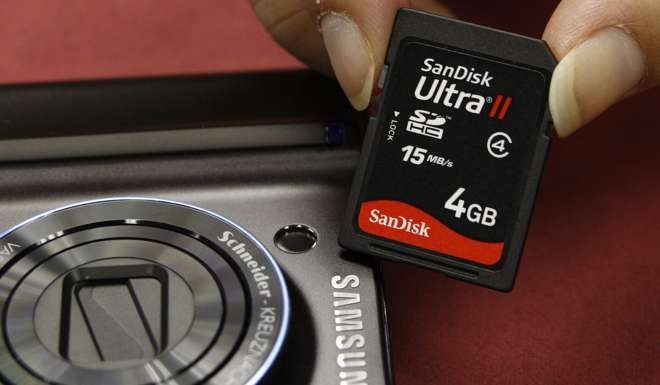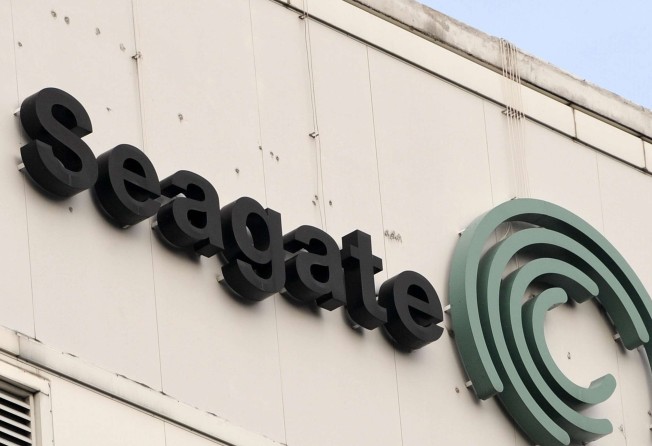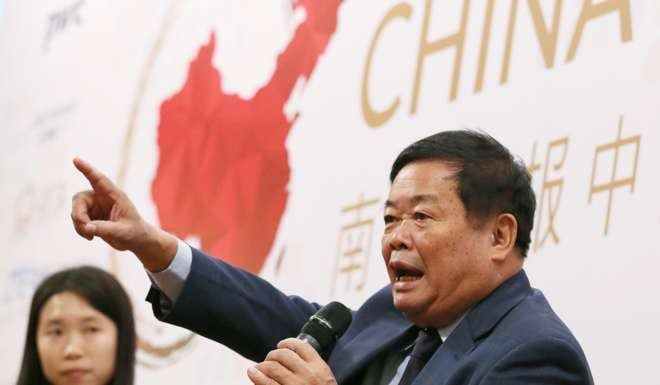
Seagate’s move to close factory in China adds to fears of suffocating tax regime
Decision by disk drive manufacturer reportedly comes after months long battle with local officials over whether it should pay more in levies

A decision by Seagate, the world’s biggest maker of hard disk drives, to close a factory in Suzhou in eastern China and lay off some 2,000 workers has raised questions over whether the nation’s tax regime is suffocating its economy.
Although both the local tax authority, where the plant is located, and Seagate have cited a “business reshuffle” as the reason for the closure, analysts and chamber of commerce officials said the tax system might have played a role in convincing the company to downsize its mainland operations. Seagate paid US$225 million in taxes in early 2015 and was required to pay an “additional” 400 million yuan (HK$450 million) in tax annually.
“The tax situation makes it very difficult for Seagate, who made a business decision to leave Suzhou. As far as I know, the company felt the need to undo its tax burden,” William Zarit, chairman of the American Chamber of Commerce in China, said at a briefing in Beijing last week.
Suzhou is located in Jiangsu, a province that is a magnet for foreign investment, and Seagate’s decision has caught nationwide attention amid concerns China is losing its appeal to overseas investors.
A recent survey by AmCham in China showed that one in four US businesses in China had moved operations out of the country or planned to do so, citing rising costs and protectionism.
US President Donald Trump’s policies of cutting taxes and wooing back businesses has intensified concerns China may soon face a “hollowing out” of the manufacturing sector as producers seek out lower operating costs in other countries.
“The calculation is changing,” said Julian Evans-Pritchard, a China economist at Capital Economics. “Foreign firms are less and less optimistic about the regulatory environment in China.”
For those whose main market is the United States, “they have to take account of the increased risk of strict market access under the Trump administration”.
Beginning in the 1980s, China rolled out the red carpet to foreign investors promising tax holidays, preferential rates and even subsidies, until 2008 when the government officially cancelled preferred tax treatments to foreign businesses.

The move came as China carried out a massive stimulus to bolster growth after the global financial crisis, and local government expenditure surged, forcing them to borrow heavily and improve tax collection.
Suzhou, once the top destination in China for foreign investors, looked for new ways to collect levies, including through advance pricing agreements, an arrangement that allows governments to curb “tax avoidance” by multinationals.
Multinationals often shift profits to places where taxes are low via “transfer pricing”, a constant source of tension with tax authorities. In one well known case, the European Union last August ordered Ireland to collect €13 billion (HK$108 billion) in back taxes from Apple. Both Apple and Ireland appealed the decision.
In China, however, taxpayers usually can’t challenge the tax authorities. In responding to public criticism, the Jiangsu taxation bureau said in a statement on January 16 that Seagate “applied” to sign the tax deal in 2015 and the bureau did nothing wrong.
However, China Youth Daily, a paper published by the China Youth League, provided a different account, although the newspaper didn’t specifically name Seagate in its story.
According to the report in April 2015, a month after Seagate agreed to pay, the Jiangsu tax bureau was keen to boost levies on foreign businesses and created a 22-member task force to spot tax avoidance.
A team led by an official named Zhu Hai discovered Seagate had a profit margin of just 1 per cent at its Jiangsu operation and ordered the company to “open up its financing and accounting system” for inspection. When Seagate refused, the tax officials threatened to impose a tax rate based on their own calculations. Seagate surrendered its financial data.
After combing through the information for five months and also reviewing the financial statements of 1,200 listed companies, the Jiangsu tax bureau started negotiating with Seagate. Company executives were at first “arrogant and aggressive”, but the officials eventually pushed back, China Youth Daily reported.
“The two sides had huge differences, and negotiations stalled. The foreign company [Seagate] threatened to withdraw their China investments if the inquiries continued,” the newspaper reported. “After nearly 20 rounds of negotiations, the company finally agreed to pay tax and interest totalling 1.4 billion yuan.”
Seagate has another factory in Jiangsu, at Wuxi. The closure of Suzhou plant made good business sense as the market for hard disk drives is being eroded by flash memory sticks and cloud storage. The layoffs in Suzhou are only part of Seagate’s plan to sack 6,500 workers worldwide.
But the closure still stokes fears among the public that the government is “draining the pond to catch all the fish”.

The finance ministry and the taxation bureau maintain that levels are still low and there was room for increase. Zong, the chairman of Wahaha Group, has complained his business is subject to more than 500 different types of taxes and government charges. But the economic planning agency and the finance ministry, two powerful ministerial bodies in Beijing, responded that “only” 317 types of taxes and fees were actually collected.
Analysts say Beijing’s reluctance to make meaningful cuts in taxes will put the nation at a disadvantage during the Trump era.
“In the energy sector, for example, costs are lower in the US, and its regulatory system is more reasonable than here,” Lester Ross, policy committee chairman with the AmCham China, told the South China Morning Post. If taxes rise ... and we impose a greater burden, companies may start to think we can do the same thing elsewhere,”